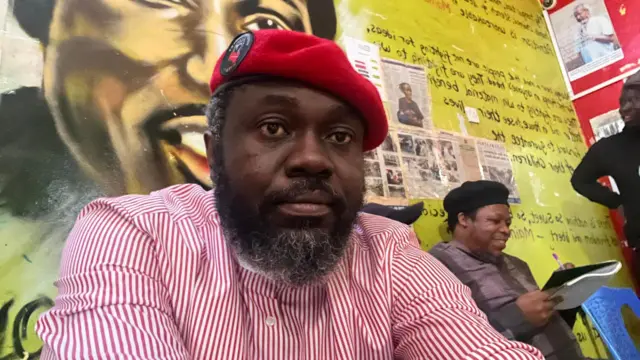Oliver Barker-Vormawor, a private legal practitioner and social activist, has expressed disapproval of the government’s decision to arrest Rev. Ntim Fordjour, Member of Parliament for Assin South. The arrest attempt stems from Fordjour’s allegations about suspicious flights linked to drug trafficking and money laundering at Kotoka International Airport.
Barker-Vormawor suggested a more measured approach would have been more suitable, proposing Fordjour’s removal from the Interior and Defence Committee and referral to the Privileges Committee for further investigation. He stated, “I would have just taken Ntim Fordjour off the Defence Committee, then stated a case for the Privileges Committee to deal with him”.
The Minority in Parliament intervened, blocking the arrest attempt, citing lack of a valid warrant. Minority Leader Alexander Afenyo-Markin condemned the National Investigations Bureau’s actions, calling them an assault on parliamentary oversight and an attempt to suppress opposition voices.
This incident highlights the complexities of Ghana’s political landscape, where lawmakers and security agencies navigate sensitive issues. Barker-Vormawor’s stance reflects his commitment to addressing national concerns through measured means.
The government’s response to this controversy will have significant implications for Ghana’s democratic development and the rights of its citizens. The situation remains ongoing, with many awaiting the outcome and its potential impact on the country’s political landscape.
In recent years, Ghana has faced various challenges related to national security and the role of the judiciary in resolving them. The government’s response to these challenges will be crucial in maintaining public trust and confidence in their leadership. By engaging in open and inclusive dialogue with stakeholders, the government can develop effective solutions that address the needs of all parties involved.
The situation has also sparked a broader discussion about the need for transparency and accountability in Ghana’s government. Many experts argue that the country’s institutions are in need of reform to ensure that they are more inclusive and representative of the needs of all Ghanaians. This could involve changes to the way that government officials are held accountable for their actions, as well as reforms to the electoral commission to ensure that it is more independent and impartial.
As the controversy continues to unfold, it remains to be seen how the government will respond to the allegations and the public’s reaction. One thing is certain, however: the outcome will have significant implications for Ghana’s democratic development and the rights of its citizens.
In the midst of this controversy, it is essential to consider the broader implications for Ghana’s democracy. The country’s democratic institutions have been praised for their stability and effectiveness, but challenges remain. The government’s response to these challenges will be crucial in maintaining public trust and confidence in their leadership.
The incident also raises questions about the role of lawmakers in Ghana’s democracy. As elected representatives, lawmakers have a critical role to play in holding the government accountable for its actions. However, their actions must also be guided by a commitment to transparency and accountability.
As the situation unfolds, it is essential to consider the potential consequences of the government’s actions. The outcome will have significant implications for Ghana’s democratic development and the rights of its citizens. The government’s response to these challenges will be crucial in maintaining public trust and confidence in their leadership.









